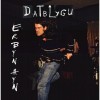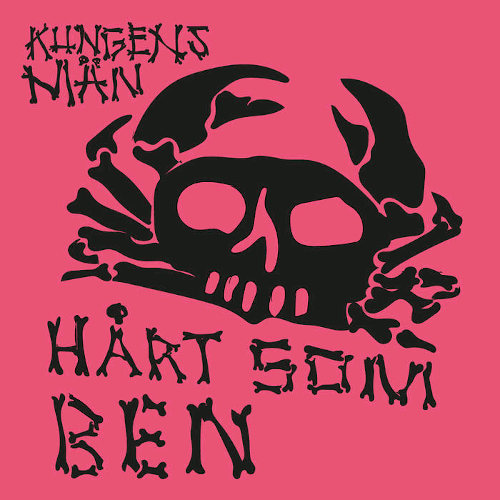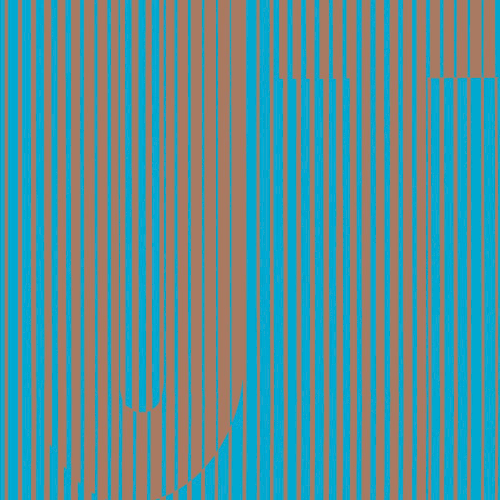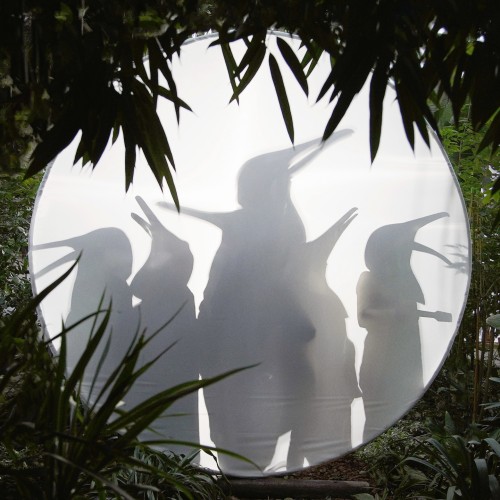So when a new EP comes out from Datblygu, Freq offers up not one, but two reviews. Firstly, Kev Nickells enthuses:
 In a caveat that might as well be me saying “this is why I don’t write for a living,” it’s tricky writing about Datblygu. Certainly from my perspective. If you don’t know, they’re broadly considered as arguably the most important Welsh-language bands of the last 32 years, but their culture is vastly removed (and desperately scathing) of the Eisteddfod and shitty festivals of crap singer-songwriters in sodden Cardigan. What I’ve picked up from their lyrics come from the English translations in the Wyau/ Pyst/ Libertino double CD Ankst put out a few years ago. For the uninitiated, buy that. By the time I’d picked that up I was utterly gagging to hear what the lyrics were about; and it transpires that David R Edwards is one of our finest living lyricists; and finest living melodists too. Prior to that, I’d been mouthing lyrics to myself, like those to “Bloneg Meddyliau” and the “Cariad” (“love”, but a bitter one) of “Bedd O Flodau Byw,” with no idea what I was on about. And much of it is entirely brutal, scathing, impossibly bleak (“Saith Arch Bach” – “Seven small coffins”); probably bolstered by the opacity and self-hatred I get when I can’t even speak the second language of Great Britain, let alone anything else.
In a caveat that might as well be me saying “this is why I don’t write for a living,” it’s tricky writing about Datblygu. Certainly from my perspective. If you don’t know, they’re broadly considered as arguably the most important Welsh-language bands of the last 32 years, but their culture is vastly removed (and desperately scathing) of the Eisteddfod and shitty festivals of crap singer-songwriters in sodden Cardigan. What I’ve picked up from their lyrics come from the English translations in the Wyau/ Pyst/ Libertino double CD Ankst put out a few years ago. For the uninitiated, buy that. By the time I’d picked that up I was utterly gagging to hear what the lyrics were about; and it transpires that David R Edwards is one of our finest living lyricists; and finest living melodists too. Prior to that, I’d been mouthing lyrics to myself, like those to “Bloneg Meddyliau” and the “Cariad” (“love”, but a bitter one) of “Bedd O Flodau Byw,” with no idea what I was on about. And much of it is entirely brutal, scathing, impossibly bleak (“Saith Arch Bach” – “Seven small coffins”); probably bolstered by the opacity and self-hatred I get when I can’t even speak the second language of Great Britain, let alone anything else.
ANYWAY the point is that the most difficult thing about this is that I’m reviewing an EP (remember them?) where I’m getting only half the picture; and unlike music well outside of my language frame (say, Oum Kalthoum or something), I can’t drift into a listening where the lyrics becomes sheer music. The syntax of Welsh is similar, some of the words are the same (meaning Anglophones can get the odd word here or there) and every now and then there’s an explosion of comprehension (the spitting of “Max Boyce” and “fucking Glastonbury” in “Cerdd(o’r)iaith”).
What Datblygu sound like is annoying to write down. They’re kind of in a lineage that says The Fall, but not really anything like them, in any respect. So, much like the Country Teasers, who sound nothing like The Fall except they do somehow. And Datblygu also don’t sound like the Country Teasers (whose “Secrets in Welsh,” I gather, is something of a tribute to Datblygu). There’s a lo-fi sensibility and a kind of apparent off-time thing (which is actually just rhythm without faff, like indie should do) and there’s not really any commitment to an instrument — guitars, drum machines, melodicas, pianos, filthy synths (by which I mean the kind of old synths that still sound like old synths rather than the objects of producer-fetishes)… the impression is less of instrumentalists but songwriters with a very peculiar (and utterly, utterly judicious) idea of what a song is.There’s a back history to this record where Datblygu went off the map for a decade or more. There’s a sensationalist story to be told but as I’m reading the history in translated Welsh pages, I’d be a dick to regale you with it. But it was a definite HOORAY for me when they came back, as it seemed like, y’know, desperately sad that they weren’t around being vital and amazing.
Oh, OK, I’ll review the fucking record then. It’s amazing. Bits of it fall into territories I can’t get (the spoken word of “Dim Achos”), bits of it could’ve been on any Datblygu record since 1982 (’80s electro pop via sot-karaoke monologues on “Achos”). “Can Werin,” which lurches like a sea shanty, is the one that’s latched into my head and it’s genuinely lovely to hear a no-longer-in-his-30s heavy smoker using the rattle as proper singers should. “Cerdd(o’r)iaith” has the quality of being a declarative stentorian number — which is like a rant but somehow less bathetic. And yeah, that’s the real MES comparison — a man who knows how to deliver a lick of malice without falling into ‘doth protest’-ry. “Pawb” is perhaps the track that stands out as least like anything else in the Datblygu canon — a solo vocal monologue from Patricia Morgan (who I don’t think has had a solo vocal before?) with textural backmasking ambient soundscrapism in the background. Closing number “Teimlad” is probably most frustrating — I’d imagine it’s a reference to “Y Teimlad” (“The Feeling”), a song that apparently gets played on Welsh radio because it’s ostensibly a chirpy-ish number. But this one doesn’t have a particular musical orientation suggesting ‘mood’ so… yeah, it’s probably a lyrics thing.OK I HAVE BORED YOU ENOUGH WITH MY WORDS GO AND LISTEN TO FUCKING DATBLYGU BECAUSE FUCKING DATBLYGU ARE THE BEST, FOR ALL OF THE REASONS.
…and Michael Rodham-Heaps writes:
It’s a little known fact, that I’m half Welsh on my mother’s side. I was born a Lancastrian but we had plenty of family holidays in Wales, visiting relatives in Merthyr where she grew up. Recollections are a bit hazy, but it was an odd place full of honest people. The 1966 Aberfan disaster still loomed over the place like the spectres of turf-covered slag. That valley-running stone stream still rattles in my head to this day, and I remember imagined open satchels tumbling their contents and tried to immediately blot the image out… I know I lot of people think this is mystical bullshit, but the veil seemed paper-thin there as if you could easily tear — or was it just a symptom of a heavy diet of watching The Tomorrow People?I remember buying The Creatures double single in WH Smith near there in the early ’80s — that song “Thumb” captured the dark bricks perfectly. Re-visited in the ’90s, the Jewish graves full of spray-canned swastikas, the local pub owner calling the police after thinking our badly parked car had been abandoned by joy-riders. Thatcher had a lot to answer for, although I never sensed any prosperity in the scatter-bug wafts of perfume mixed with too much alcohol. My nan had the tongue, often reserved for times of stress when English just wouldn’t do, and I was always intrigued by the strange fluid vowel(less) daisy chains of constraints, the drunken butterflies of it all.
I discovered Datblygu much later, in second-hand copies of Pyst and Wyau. The fact they sang in Welsh got me at a base level with fond memories floated back on Fall-like couriers. It was untouchable, eclipsed all that yuppie greed for what it was, felt real (even though I couldn’t fully understand what was being said, it never stopped me appreciating). The music documented an honest, make-do ethos that inspires, shouting a massive “fuck you” to a world often choked in sameness, a direct antithesis to mainstream acts like the Super Furries and Manics who seemed to be missing the point by not singing in their native tongue.Anyway, fast forward to twenty fourteen and I’m glad to say their freshly-minted EP is like they never left. David’s voice has aged well, still spittle-bound as ever, the music simple and highly evocative. Right from the offset “Achos,” with its slow burn of synth, sets the scene, all sighs and inclement weathers (documenting a final love affair) like an early OMD with words breaking around it in stone circles, subtly duet-spiked by Patricia Morgan as spans of chord seem to cut through fog.
A folksy a capella follows all too briefly, then the spidery “Can Werin” with its gypsy accordion painting a bleak reflection of Wales. Comparing sheep crammed onto slaughterhouse trucks to the school buses full of children and a school system where the biggest bullies are the headmasters, which interestingly sort of tallies with a vague recollection of my very old aunt telling me about how Welsh was discouraged at school, like left handed-ness (a memory too moth-eaten to be reliable, I suspect [Though correct. Ed.] )“Pwynt”‘s flat horizon is beautiful, its lamentful tide stealing a thin glint of sea from the distance, full of sand-sunk word posts. The liner notes providing us with the motto: “free time is more important than the money you earn.” We need more mottos like that; and it’s no accident that the music on “Cerdd(o’r)iaith” sounds like circling flies round a stinking bin bag — it is a critique of the music industry after all — and did he just say “fucking Glastonbury”‘? Yes, he did… good on yer! It’s taking a lot in for just under 18 minutes and it seems rather fitting that “Pawb” as a meditation on death should be served on a bed of reverses, as if trying to paddle backwards from the inevitable. Patricia’s voice here brings to mind Ochre Records‘ short-lived collective The Serpents, another Welsh(ish) band who bizarrely included Catalina Guirado amongst their ranks.
It’s a great EP, with the last song raising a drink to the end of Thatcherism, as the album notes say, “before buying another with the government’s money.” David always having the last laugh, and rightly so.




2 thoughts on “Datblygu – Erbyn Hyn”
Great review, but just to put the record straight Patricia wrote the tunes and played the instruments on Cerdd o’r Iaith, Pwynt and Can Werin. Seren Cynfal did backing vocals on Achos.
Thanks for the correction, Victoria, and glad you enjoyed the reviews.